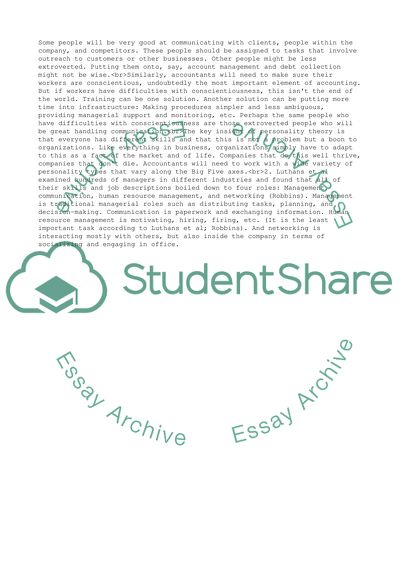Cite this document
(“Personality Theory in Organizational Behavior Assignment”, n.d.)
Retrieved from https://studentshare.org/management/1574172-organizational-behaviour
Retrieved from https://studentshare.org/management/1574172-organizational-behaviour
(Personality Theory in Organizational Behavior Assignment)
https://studentshare.org/management/1574172-organizational-behaviour.
https://studentshare.org/management/1574172-organizational-behaviour.
“Personality Theory in Organizational Behavior Assignment”, n.d. https://studentshare.org/management/1574172-organizational-behaviour.


